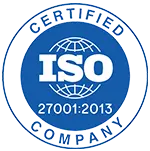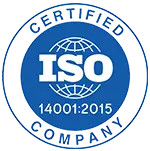The Request for Quotation, or RFQ, is an effective tool that frequently lurks in the background in the corporate world, where every choice can have a significant influence. It directs enterprises towards options that are both cost-effective and quality-driven in the field of procurement and sourcing, much like a secret treasure map. It is focusing on vendor capabilities, competitive pricing, and setting up an even playing field for all parties.
This article will help you understand the fundamentals and demystify the mysterious world of requests for quotations (RFQs), its compelling purpose, the art of knowing when to use it, various types of it, and the methodical process of it.
What RFQ Means?
A Request for Quotation (RFQ) is a formal document sent to potential suppliers or vendors, inviting them to submit price quotes for specific products or services. It serves as a written request for competitive bids from suppliers, allowing businesses to compare offers and make informed procurement decisions. Essentially, an RFQ acts as a structured communication tool to facilitate vendor selection based on cost, quality, and other relevant factors.
What is the Purpose of the RFQ Process?
The primary purpose of the RFQ process is to streamline procurement and sourcing activities. Some key objectives include:
Cost Efficiency: RFQs enable businesses to obtain competitive pricing, helping them secure the best possible deals from suppliers.
Vendor Assessment: Through RFQs, businesses can evaluate potential suppliers’ capabilities, reliability, and adherence to quality standards.
Standardization: RFQs promote a structured approach to procurement, ensuring that all potential vendors receive and respond to the same information.
Transparency: The RFQ process fosters transparency by documenting the vendor selection criteria and the decision-making process.
When Should You Use an RFQ?
RFQs are typically used when:
Specific Requirements: Your business has clear and specific product or service requirements.
Multiple Suppliers: There are multiple suppliers in the market who can meet your needs, and you want to compare their offers.
Cost-Driven Decisions: Cost is a significant factor in your procurement decisions, and you want to obtain competitive pricing.
New Vendor Evaluation: You are considering new vendors and need a structured method to evaluate their suitability.
What are the Types of RFQ?
RFQs come in various forms, depending on the level of openness and the number of suppliers involved.
The common types of RFQs include:
Open Bid RFQ:
Open-bid RFQs are like throwing a wide net into a vast ocean of suppliers. They are open to any qualified supplier in the market, inviting a multitude of participants to submit their quotes. This type is ideal when you want to maximize competition and cast a broad net to obtain the best pricing.
Businesses often opt for open-bid RFQs when they require a common commodity or service with several potential suppliers capable of meeting their needs. It ensures that a wide range of vendors, both established and new entrants, can participate and offer their competitive bids.
Closed Bid RFQ:
Closed bid RFQs, in contrast, are more selective, akin to an exclusive club with a limited guest list. These are restricted to a pre-qualified list of suppliers, narrowing the competition to a select group of trusted partners or vendors.
This type is often chosen when you want to work with a known and reliable group of suppliers. Closed bid RFQs can streamline the selection process, as they are tailored to a specific set of suppliers who are already vetted for their capabilities, quality, and trustworthiness.
Invited Bid RFQ:
Invited bid RFQs are the VIP of the procurement world. Businesses send these to specific suppliers they invite to participate, creating an exclusive atmosphere for a highly specialized or niche product or service.
This type is particularly valuable when dealing with unique or complex requirements where only a handful of suppliers possess the specialized expertise or resources needed. By inviting a select few, you ensure that the right experts are involved in the bidding process.
Reverse Auction Bid RFQ:
Reverse auction bid RFQs introduce an element of dynamic competition. They are like an intense bidding war where suppliers compete to provide the lowest bid, giving businesses a chance to drive down costs.
This type is especially effective when price is a critical factor in the procurement decision. It empowers businesses to harness the power of competition to secure the best pricing, making it ideal for cost-sensitive purchases.
Each type of RFQ has its unique purpose and advantages, allowing businesses to tailor their procurement approach to the specific needs of each sourcing initiative. Whether you seek broad competition, an exclusive circle of suppliers, specialized expertise, or price-driven decisions, the right RFQ type can significantly impact the outcome of your procurement efforts.
What is the RFQ Process?
The RFQ process typically involves three key phases:
Preparation: In this phase, the procurement team defines the requirements, prepares the RFQ document, and identifies potential suppliers. The RFQ document should be clear and concise, outlining the specifications, terms, and evaluation criteria.
Management: During this phase, the RFQ is distributed to the selected suppliers. The procurement team manages the communication and clarifications, allowing suppliers to ask questions and seek clarifications. This phase ensures a fair and competitive bidding process.
Closing: The closing phase involves receiving and evaluating supplier responses. The procurement team assesses the bids based on predefined criteria, negotiates terms if necessary, and selects the most suitable supplier.
In summary
Requests for Quotations, or RFQs, are an important instrument in the sourcing and procurement process that helps companies find the products and services they need quickly and affordably. Businesses can utilize this tool to improve their overall operations and make informed procurement decisions by learning about RFQs—what they are, why they are used, and their various types. Having a well-organized RFQ process from start to finish will ensure transparency, efficiency, and vendor quality, regardless of whether you want to use an open, closed, invited, or reverse auction bid.
Want to know more about RFQs and their role in eProcurement? – Connect with our experts now or write us at contact@terotam.com








